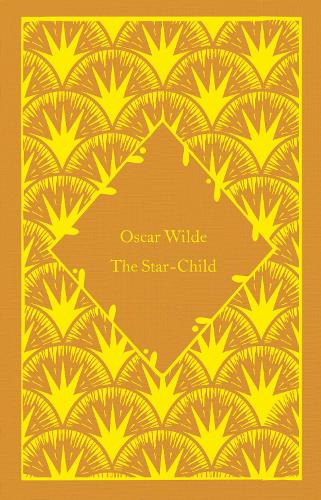
The Star-Child
(Hardback)
Publishing Details
The Star-Child
By (Author) Oscar Wilde
Penguin Books Ltd
Penguin Classics
7th February 2023
3rd November 2022
United Kingdom
Classifications
General
Fiction
Fairy and Folk tales / Fairy tale retellings
Fantasy
823.8
Physical Properties
Hardback
208
Width 118mm, Height 168mm, Spine 19mm
224g
Description
Introducing Little Clothbound Classics- irresistible, mini editions of short stories, novellas and essays from the world's greatest writers, designed by the award-winning Coralie Bickford-Smith. With warmth, tenderness and quiet wit, Oscar Wilde's fables and fairy tales have moved and delighted for generations. In far-off kingdoms and ocean realms, in the company of giants and nightingales, Wilde speaks of heartbreak and redemption, of cruelty and compassion, of love lost, of love gained, of love lasting. Included in this selection are stories from The Happy Prince and A House of Pomegranates.
Author Bio
Oscar Fingal O'Flahertie Wills Wilde was born in Dublin in 1854. He went to Trinity College, Dublin and then to Magdalen College, Oxford, where he began to propagandize the new Aesthetic (or 'Art for Art's Sake') Movement. Despite winning a first and the Newdigate Prize for Poetry, Wilde failed to obtain an Oxford scholarship, and was forced to earn a living by lecturing and writing for periodicals. After his marriage to Constance Lloyd in 1884, he tried to establish himself as a writer, but with little initial success. However, his three volumes of short fiction, The Happy Prince (1888), Lord Arthur Savile's Crime (1891) and A House of Pomegranates (1891), together with his only novel, The Picture of Dorian Gray (1891), gradually won him a reputation as a modern writer with an original talent, a reputation confirmed and enhanced by the phenomenal success of his Society Comedies - Lady Windermere's Fan, A Woman of No Importance, An Ideal Husband and The Importance of Being Earnest, all performed on the West End stage between 1892 and 1895. Success, however, was short-lived. In 1891 Wilde had met and fallen extravagantly in love with Lord Alfred Douglas. In 1895, when his success as a dramatist was at its height, Wilde brought an unsuccessful libel action against Douglas's father, the Marquess of Queensberry. Wilde lost the case and two trials later was sentenced to two years' imprisonment for acts of gross indecency. As a result of this experience he wrote The Ballad of Reading Gaol. He was released from prison in 1897 and went into an immediate self-imposed exile on the Continent. He died in Paris in ignominy in 1900.
